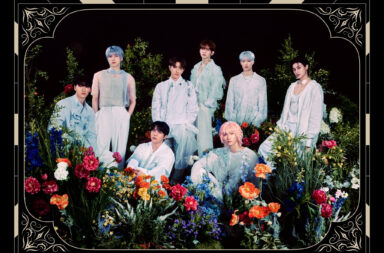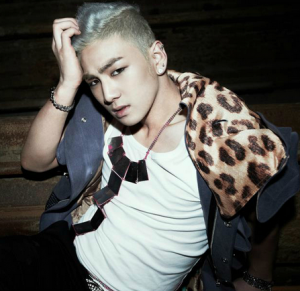 We build our fan “career” on supporting our idol. But at what point does it change from a healthy relationship into an unhealthy relationship? Is it really ok to support a criminal? What should we do?
We build our fan “career” on supporting our idol. But at what point does it change from a healthy relationship into an unhealthy relationship? Is it really ok to support a criminal? What should we do?
This post contains discussions of assault and violence.
10. Wait for the facts.
This part is easy–wait to hear the truth–or so it seems. But are we really hearing the truth? And how do we work that out? If we don’t speak the language, what if it’s a mistranslation? We must be careful.
Currently, NU’EST’s Baekho has been accused of sexual assault, and netizens have a variety of opinions on this matter. Waiting for the facts means just that- the facts of this particular case. Often fans note unrelated past cases–for example “Oh, there have been so many accusations lately…” as a kind of evidence that something may or may not be true or false. While repeated accusations against the same person could indeed lead back to guilt, we don’t know for sure and it should be investigated properly. This doesn’t mean you can’t be suspicious, but that you need to be very careful about whether you voice it, and if you do, how you voice it. In some instances, a question can be far more effective than a statement.
On the flip-side, unrelated cases have absolutely nothing to do with the current case. For example, “Well, that one fan accused Idol X of assault and she was lying, therefore this other fan accusing idol Y of assault is probably lying too” statements have no basis in evidence . Each case should be considered on its own merits, with proof. We cannot summarily pass judgement when we do not have access to any of the facts.
 Then there is also the question of evidence and patterns of behaviour; in the above cases, people are trying to draw comparison with other non-directly related cases. In the case against rapper Iron, he is alleged to have assaulted his ex-girlfriend and his trial is currently underway. There are two points I would draw attention to here; the first being his ex-girlfriend undeniably was assaulted–the question now is whether Iron was the perpetrator, which he may not have been. The second point is that when Iron was accused, he straight away identified her in an article, leaving her open to relentless online harassment. This alone is not evidence of guilt. It is however a red flag, as his action was both deliberate and harmful. I will be watching for the outcome of his trial very carefully.
Then there is also the question of evidence and patterns of behaviour; in the above cases, people are trying to draw comparison with other non-directly related cases. In the case against rapper Iron, he is alleged to have assaulted his ex-girlfriend and his trial is currently underway. There are two points I would draw attention to here; the first being his ex-girlfriend undeniably was assaulted–the question now is whether Iron was the perpetrator, which he may not have been. The second point is that when Iron was accused, he straight away identified her in an article, leaving her open to relentless online harassment. This alone is not evidence of guilt. It is however a red flag, as his action was both deliberate and harmful. I will be watching for the outcome of his trial very carefully.
9. Be aware of our bias.
What’s your bias: your immediate assumption and reaction? I’m a passionate fan but I’m more passionate about justice. My own bias is often to be skeptical about the accused perpetrator and willing to believe the victim. But I also believe strongly in evidence, so no matter how I feel, I always wait and consider what we know by reputable sources.
 I’m a BTS fan and when the Rap Monster shadeism scandal came out back in 2015, I desperately wanted to believe that he learnt from his actions and tried to apologise through his post. However, I don’t know for sure, so I’ll wait. Idols are human and they make mistakes. I’ll support him, but only if he learnt from this. If he says another, similar thing in the future, it will break my heart but I won’t support him. This is why I no longer support Zico, who consistently uses demeaning language and actions; with misogynistic, homophobic and racist themes.
I’m a BTS fan and when the Rap Monster shadeism scandal came out back in 2015, I desperately wanted to believe that he learnt from his actions and tried to apologise through his post. However, I don’t know for sure, so I’ll wait. Idols are human and they make mistakes. I’ll support him, but only if he learnt from this. If he says another, similar thing in the future, it will break my heart but I won’t support him. This is why I no longer support Zico, who consistently uses demeaning language and actions; with misogynistic, homophobic and racist themes.
Another important point is bias in language. Language is a strange and complex thing, and sometimes people assume that lack of outright accusation is the same thing as neutral. The truth is, bias is often implied, especially when using caveats like “but”. Observe: “We’ll wait and see but there have been so many false reports…”.
While “wait and see” is neutral and unbiased, the “but there have been so many false reports” effectively nullifies the “wait and see”. The emphasis in this sentence is on the false reports, and connecting the two together implies you’re actually not waiting, you’ve already determined there’s a high likelihood of this report being false and are passing that assumption on to others. There is a strong implication that this report must also be false, not neutral at all.
On the other hand, saying “There have been many false reports. We’ll have to wait and see the outcome of this investigation.” has the emphasis on the investigation’s outcome, and the two separate statements show far more neutrality. These small changes can make a large difference in the reader’s mind. We need to be able to discuss obvious evidence; we just need to remain as neutral as possible when we do this.
8. Adapt our beliefs as a result of new evidence.
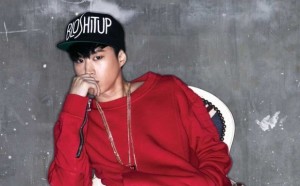 Anyone remember poor Tablo‘s scandal? Rumours of his falsified degree spread like wildfire on the internet. Rather than asking for evidence, netizens spread the rumours which grew and grew, creating a large backlash against Tablo. The only problem? The accusations were false and Tablo suffered immensely, and ended up signing with YG afterwards due to the support he received from YG Entertainment. There were many netizens who had to adapt their thinking when the evidence finally came out vindicating Tablo.
Anyone remember poor Tablo‘s scandal? Rumours of his falsified degree spread like wildfire on the internet. Rather than asking for evidence, netizens spread the rumours which grew and grew, creating a large backlash against Tablo. The only problem? The accusations were false and Tablo suffered immensely, and ended up signing with YG afterwards due to the support he received from YG Entertainment. There were many netizens who had to adapt their thinking when the evidence finally came out vindicating Tablo.
In cases of sexual assault and domestic violence, it’s worth noting as well these horribly contradictory things:
- Often those who assault others are repeat offenders with multiple past cases. (Sometimes cases are too risky to bring to trial, sometimes victims are unwilling to face the further trauma of a court case.)
- Mud sticks — studies show if you throw enough accusations against an innocent person, others will start to have a negative opinion of them, even if there’s no actual truth to the accusations.
7. Consider the difference between accusations and admissions.
The presumption of innocence and the requirement of evidence is important. But fans need to be open to the possibility that idols can do wrong, and if they admit to it, act accordingly. For example, Kim Hyun Joong admitted to hitting his girlfriend. Yes, in this case the waters were muddied and the story seemed to change every week. Regardless, he did admit to hitting her, and while that doesn’t make her magically guilt free of other crimes (he accused her of hitting him), that does make him (and only him) guilty of assaulting her.
6. Don’t automatically equate mental illness with deliberate violence.
Sometimes they’re connected, it’s true. But there are plenty of mentally ill people who go through life without harming anyone else. It’s not fair to those who are mentally ill to have this stigma attached.
On a more serious note, it’s often not mental illness but entitlement. It’s the kind of mentality, that has some men saying “If I want her, I can have her, I don’t care what she wants” and others saying “If I can’t have her, no one can!” right before they reach for a gun. This kind of mentality is perfectly demonstrated by the Miryang case; high school boys gang raping a 14 year old girl, blackmailing her and attacking others in a truly horrifying situation. This kind of situation is not mental illness, it’s primarily entitlement–the perpetrator feeling entitled to control the victim because the perpetrator doesn’t see the victim as a person but a possession.
It should horrify you to know that victims of domestic violence, often but not always women, are most at risk when they leave a violent relationship. Police have stated that after leaving is the time a victim is most likely to be murdered. (Remember: “If I can’t have you, no one can!”) It’s also worth noting that some perpetrators have said they felt they could kill their victim and get away with it because no one addressed their previous abuse. This means by ignoring this, we directly increase the danger to the victim. In regards to gender, it can be a toxic masculine mentality–in my country, Australia, 80-100% of rapists, domestic violence perpetrators and stalkers are men. One woman dies every week due to domestic violence. The exact proportions may change across different countries, but the skewed dynamic of male perpetrator and female victim hardly varies.
5. Don’t victim blame.
 Blame for assault is 100% on the perpetrator. It doesn’t matter what the victim was wearing, drinking, if they were taking drugs, walking alone. It doesn’t matter who their previous partners were, or if they consented in the past, if they didn’t consent this time. They can be the nastiest person in the world, but that still doesn’t equate to them “deserving” assault. The problem is the perpetrator, and always, only the perpetrator.
Blame for assault is 100% on the perpetrator. It doesn’t matter what the victim was wearing, drinking, if they were taking drugs, walking alone. It doesn’t matter who their previous partners were, or if they consented in the past, if they didn’t consent this time. They can be the nastiest person in the world, but that still doesn’t equate to them “deserving” assault. The problem is the perpetrator, and always, only the perpetrator.
Historically and currently, pretty much every country has issues with victim blaming and Korea is no different. From Ivy who was sued for being a victim of blackmail to Choi Jin-sil whose estate was sued after she had committed suicide for daring to show her domestic violence injuries, the cases are depressingly numerous. (I can’t even begin to wonder what kind of person you have to be to sue a dead person’s estate primarily to victim blame.) Victim blaming often has ignorant people making claims and accusations without evidence; suspicions about delays in coming forward or criticising victims for not fighting back, alongside gaslighting and minimising of harm.
Why is this so important? If you victim blame, the perpetrator sees that as an excuse to continue doing it. By removing the onus of responsibility from the perpetrator, you are effectively sending the perpetrator the message that they can keep on doing it because it wasn’t their fault. Don’t forget, looking the other way also often directly increases the danger the victim is in, turning lethal if the perpetrator thinks they can get away with murder. It is always 100% the fault of the perpetrator.
4. Understand that justice systems are flawed, and we may never know the truth.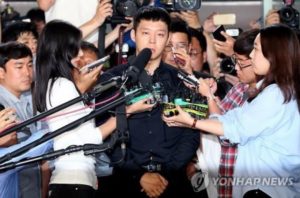
Our justice systems, to put it bluntly, are often terribly broken. There are many horrifying loopholes–many places like Korea have laws worded so that it is pitifully easy for criminals to get off. Often there are defences such as a lack of “intent to rape” or victims needing to prove a level of intimidation or struggle; which does not reflect the reality of how people react to trauma. In the case of JYJ’s Yoochun‘s sexual assault accusations, sex was not denied and DNA evidence was found, but there is a requirement for force and intimidation rendering the victim incapable of escape, and this is very often subjective and lacking in information by trauma experts.
It is then unclear as to whether Yoochun was found not guilty of sexual assault in the sense that people from the West might view it–in that it was consensual, or simply innocent of rape in the sense that a Korean court views it–in that it was not consensual but the victim could not prove she fought back. Either way, he was not found guilty. There are even further challenges for minority victims– definitions of rape as male genitals entering female genitals lead to a glaring hole in justice for victims raped by perpetrators of the same sex. The requirement to fight back often means male victims are not believed as female perpetrators are not seen as strong enough to present a threat.

Other problems occur at every step of the process: police investigators who lack appropriate training or don’t follow procedures, who humiliate or even dissuade victims from pressing charges, re-victimisation, insiders who get off because they know the system, courts allowing victims to be cross-examined by their rapists, criminals escaping justice because they’re famous, or wealthy. Or even when they’re found guilty, criminals can be given a meaningless sentence (Brock Turner, anyone?) when rape, sexual assault and domestic violence is a life sentence for the victim. Let’s not even get into the fact that despite victims’ information being regularly leaked, we never seem to identify CEOs who force trainees into what amounts to prostitution.
Sometimes we can’t be given all of the information, in order to protect victims or children. Unless we have evidence otherwise, we have to believe in the system. But we should also monitor those systems and fight for continued improvement and justice.
3. Understand the risks that victims take in coming forward.
 Obsessive fans can take things too far in trying to defend their idols, and victims take the brunt of these actions in a range of situations. Racism and shadeism are ugly occurrences that rears their heads far too often, and unfortunately attitudes in the K-Pop community seem to be far from educated. Take the instance with Jackson’s cultural appropriation in wearing dreadlocks–when a number of people expressed how hurt this made them as a person whose culture was appropriated, fans immediately attacked. The comments I saw ranged from minimisation of harm, such as “It’s just hair, don’t be stupid” and “Aren’t there bigger problems?” to more concrete personal abuse such as swearing at the person who expressed hurt.
Obsessive fans can take things too far in trying to defend their idols, and victims take the brunt of these actions in a range of situations. Racism and shadeism are ugly occurrences that rears their heads far too often, and unfortunately attitudes in the K-Pop community seem to be far from educated. Take the instance with Jackson’s cultural appropriation in wearing dreadlocks–when a number of people expressed how hurt this made them as a person whose culture was appropriated, fans immediately attacked. The comments I saw ranged from minimisation of harm, such as “It’s just hair, don’t be stupid” and “Aren’t there bigger problems?” to more concrete personal abuse such as swearing at the person who expressed hurt.
Concerningly, as with blackface, many of these reactions came from those who had never, and likely will never, experience that kind of hurt. Likewise the reactions to BTS’ shadeism scandal saw emotional and occasionally violent reactions on both sides. To some extent, these knee-jerk reactions which don’t take into account the complexity of racism, shadeism and cultural appropriation can be a sign of ignorance and immaturity, supported by a kind of wilful blindness.
Unfortunately, in far more serious circumstances, it only gets worse. When rape and sexual assault victims come forward, they are often attacked and ridiculed, their stories and past actions criticised and disgustingly, the victims harassed by families of perpetrators. Worse, in some cases they can be charged, sued and jailed–this is not a phenomenon exclusive to Korea. While rape false accusations are abhorrent, studies show the majority of reports are true (though we must be wary of how fame could influence these statistics). Knowing how hard it is to prove rape (see point 4 for examples), the extra risk of then being prosecuted on top of the likelihood of being attacked and re-victimised by the public, as well as the understanding that the most that will happen in many cases is a suspended sentence, it all means coming forward just isn’t worthwhile for many victims.
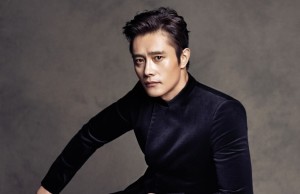 Men are victims of assault, rape and domestic violence too, and deserve our understanding and respect, as are minority groups like those from different races, social standing, younger people, disabled people and trans people. Perpetrators often deliberately seek out vulnerable victims who will not believed, or for whom the risks of it getting out are dire, regardless of the truth. Many suffer in silence and without support, others are ridiculed and have their trauma minimised. This is unacceptable.
Men are victims of assault, rape and domestic violence too, and deserve our understanding and respect, as are minority groups like those from different races, social standing, younger people, disabled people and trans people. Perpetrators often deliberately seek out vulnerable victims who will not believed, or for whom the risks of it getting out are dire, regardless of the truth. Many suffer in silence and without support, others are ridiculed and have their trauma minimised. This is unacceptable.
There should be no shame in being a victim, a survivor– the only shame should be for the criminal.
2. Preference the victim first.
In the case of domestic violence and similar situations, I usually see comments favouring the perpetrator, like in one memorable case, “He needs mental help”. I’m sure he does. But why isn’t the first thought for his victim? How about “Oh, wow, I hope she’s ok. I hope there are services to help her recover. [Perpetrator] will likely need treatment too.”
While we shouldn’t ignore or torture the perpetrator, we need to acknowledge that while the victim didn’t choose this, the perpetrator, on some level, did, and needs to be held responsible for their actions without getting preferential treatment over the victim.
And really, here’s what it all boils down to:
1. Don’t support an idol who has admitted to criminal acts, is a repeat offender, or who has been fairly convicted. Don’t excuse or defend problematic remarks or actions.
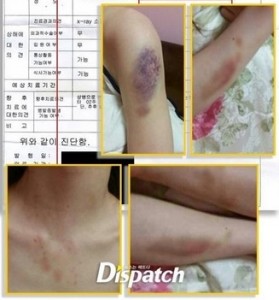
You can’t separate an idol from their actions. To use Kim Hyun Joong as an example: You can’t support Kim Hyun Joong’s music, without also supporting him as a person, and saying you’re happy to ignore his actions.
Criminal action such as domestic violence, violence against women, sexual assault, and rape, like bullying, thrives on:
a) The acceptance, ignoring of, or even defence of the perpetrator by society, friends, family and fans
b) The inability to deal with, ignoring of, or even defence by the judicial system, from police to the courts, the government and other services.
We like and respect our friends and family, or our idols too much to ever suspect them of being capable of these crimes. We make criminals out to be monsters, and our friends, our family, our idols can’t be monsters. It’s easier to believe that a stranger is a liar, instead of our friend or hero being capable of punching someone so hard they needed emergency facial surgery.
The takeaway message here is: you are who you support and defend. If you choose to defend racism, shadeism, assault, domestic violence, rape, sexism, that shows the kind of person you are. Your choices are on you. You have the choice to be better than that. You have the choice to educate yourself, to listen to the experts, to reach out to victims and lend them your strength.
(Sources: Daily Mail, Wall Street Journal via Tumblr, KLawGuru [1] [2], BBC, The Guardian, Korea Times [1][2] [3] [4] [5], Naver, Top Star News, South Australian Coroner’s Court, Self, Vice. Images via MNet, Dispatch, Newsis, Ize, 스포츠, TV Daily, YG Entertainment, Pepsi.)

